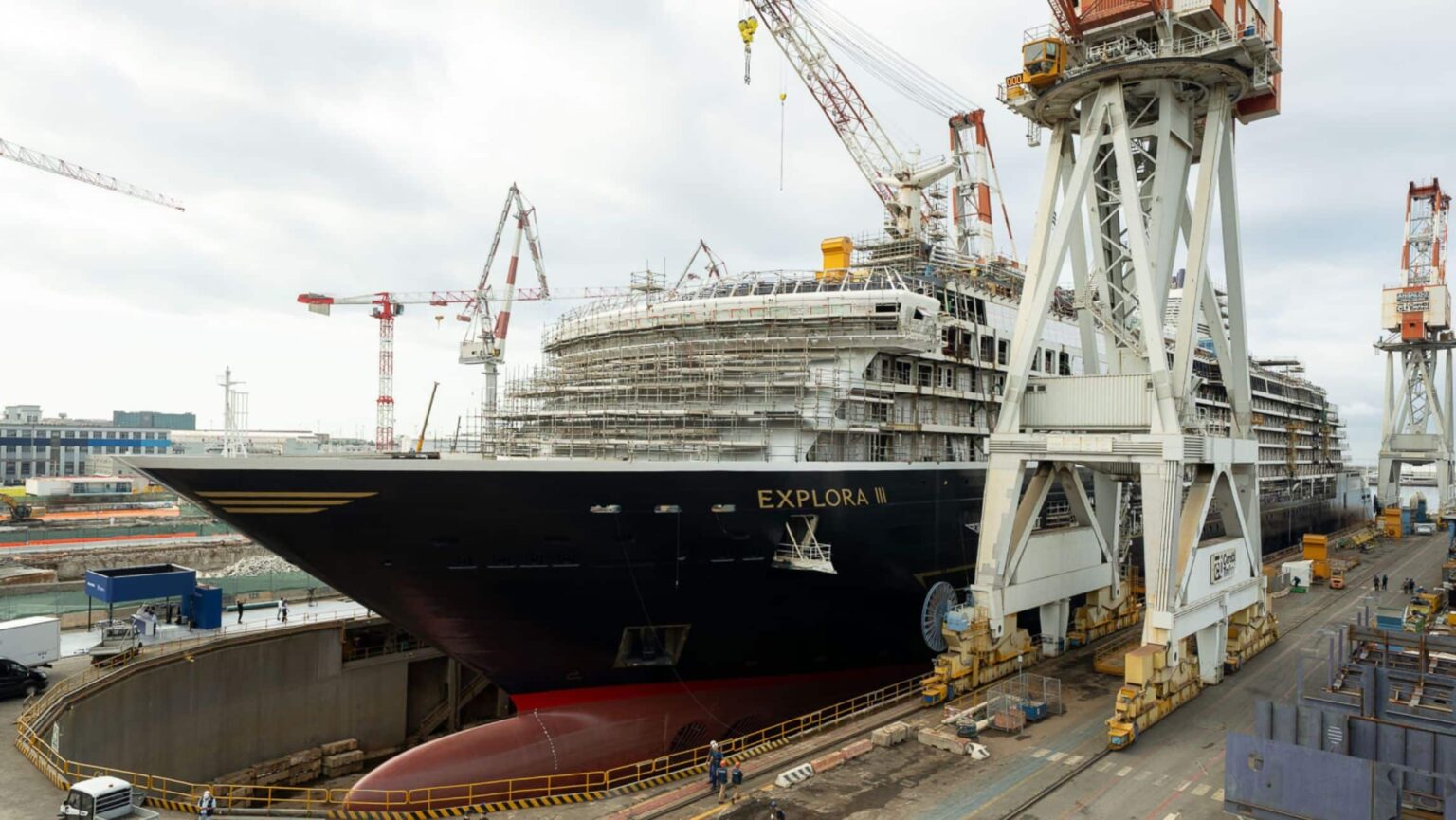- Explora Journeys marked the float out of it’s latest ship as well as the coin ceremony and steel cutting for its next two ships.
- The line will have six ships in its fleet by 2028.
- From EXPLORA III onwards, the newest ships will be powered by LNG.
Explora Journeys, MSC Group’s luxury brand celebrated three milestones for the float-out of EXPLORA III, the coin ceremony EXPLORA IV as well the steel cutting for EXPLORA V.
The fleet is set to expand to six ships in total by 2028.
EXPLORA I and EXPLORA II is already welcoming guests to a new style of ultra-elegant ocean travel and are operating at near full capacity, reflecting the strong resonance of the brand’s offering. EXPLORA III will join the fleet in 2026, followed by EXPLORA IV and EXPLORA V in 2027, and EXPLORA VI in 2028.
Anna Nash, President of Explora Journeys said, “Today marks a proud milestone for Explora Journeys as we celebrate three remarkable ships – each a symbol of our ambition to redefine ultra-elegant ocean travel.
“This triple celebration reflects the strength of our vision and the power of collaboration between our team, our partners at Fincantieri, and the unwavering support of the Aponte-Vago family. Guided by our values of care, respect, and excellence, we are not just building ships – we are creating a legacy of transformative journeys that will endure for generations to come.”
The €3.5 billion investment in Explora Journeys’ six-ship fleet – all of which are being built by Fincantieri – represents a long-term commitment not only to redefining ocean travel but also to the Italian shipbuilding industry.
Sustainability Commitment
From EXPLORA III onwards, the four newest ships will be powered by liquefied natural gas (LNG), a transitional fuel that offers a substantial reduction in emissions compared to conventional marine fuels.
These ships are also ready to use renewable alternatives such as bio-LNG and synthetic LNG. EXPLORA V and VI will go even further, with the possibility to use next-generation fuel cell technology capable of converting LNG into hydrogen to significantly reduce emissions at ports.






